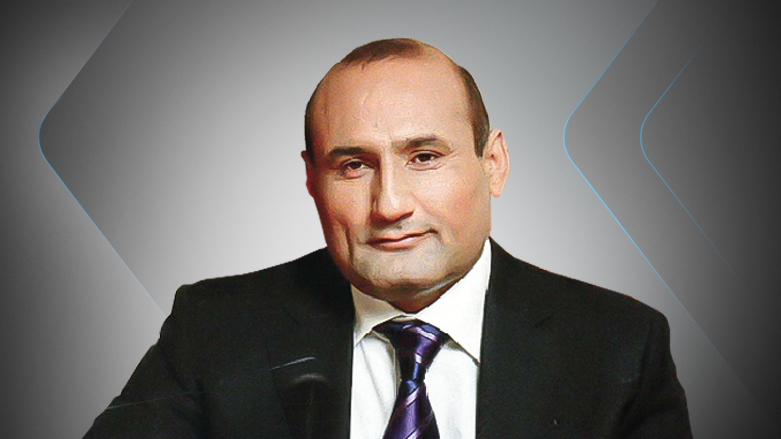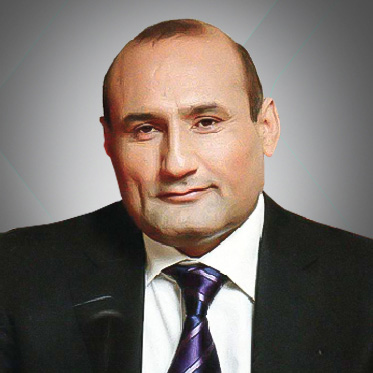Kurds must control internal affairs, play own game

When reading news about civilians and defenders of Afrin being murdered by the Turkish army and pro-Turkish militants, one question comes to mind: Why are the Kurds left alone, without protection and support from world powers?
This betrayal has happened too many times already.
The problem is that Kurdish territorial formations and political organizations were never recognized as a separate force or an independent player. Kurds have always been an instrument in someone else’s policy.
By exploiting Kurds’ lack of integration, world leaders who follow their own interests in the Middle East support various Kurdish organizations only to discard of them when they are no longer needed or are kept on standby for when they are.
It is as though these world powers are playing the accordion, pushing different Kurdish keys and playing the melody that appeals to them. Unfortunately, the Kurds dance foreign dances to foreign music.
At first glance, it appears Kurds have achieved a lot recently. Most notably, autonomy in the Kurdistan Region and success in Syrian Kurdistan (Rojava) where Kurdish autonomy is close. But, the real price for such “success” was witnessed by Kurds after a referendum in Kurdistan and now with the conflict in Afrin.
After Kurdish forces sacrificed so many lives to free northern and eastern Syrian territories from the Islamic State (IS)—carrying the hardest burden of the main assault on Raqqa, as well as Iraq’s Mosul—Kurds deserved loyalty and incentives from the anti-IS coalition countries. But, this never happened.
Kurds and their victories were quickly forgotten. When Kurds are pulling chestnuts out of the fire for influential “allies,” they are needed. However, as soon as they claim independence, these same hands quickly get beaten up.
International powers are not interested in the fact that all four parts of the Greater Kurdistan hold the same position on key issues in the Middle East. Instead, they are fine with Kurdish inconsistency—it becomes easier for them to solve their tactical and strategic tasks in the region this way.
Some questions which are discussed actively include: Who should the Kurds stand by? Which real allies should they choose? The United States, or Russia? What about Israel? Should they rely on someone else?
Maybe it is enough to play a secondary role? Or, could it be the time to become a self-sufficient force, to play their own game using discrepancies in the logic of their friends and enemies to their advantage? Kurds should begin playing their own role but not at the micro-level (i.e., bargaining for local advantages on defined territories, etc.) but on a larger scale.
Kurds should stop trying to find the “good boss” to support them. There is no such boss. Like the past, Kurds only have one ally—the mountains. As one British politician suggested, “Kurdistan has neither permanent allies nor permanent enemies, it has only permanent interests.” The permanent interest for Kurds is an independent Kurdistan.
Kurdish leaders should adopt this mentality in their politics. Yes, the game of using the discrepancies of international superpowers is complicated and dangerous, but it is worth a shot because this is the Kurds’ future, not someone else’s.
Are Kurds capable of managing their own affairs, playing “the game” on their own? Definitely not. Uniting its military, political, and economic resources is a vital requirement. Coordination is important for Kurdistan’s military and political platform to become an influential force. The task for Kurdish organizations, media, and public opinion leaders is to encourage Kurdish leaders to take steps toward one other.
The Kurds can begin to play their own game following the integration of all political parties. There are, however, many obstacles before this can happen. That remarkable role could be played by representatives of Kurdish communities outside the Kurdistan Region who can act as mediators during the arrangement of negotiations or as an influential third party.
The critical question concerning Kurds today, undoubtedly, relates to Afrin. It is unacceptable that Kurds from this canton are left alone. Kurds from other parts of Kurdistan should develop one position and decide together what to do next.
If they choose to continue defending the region, then they should fight until the last drop of blood, turning Afrin into the Kurdish Leningrad. If this is the case, then it is necessary to arrange the help of their brothers through military, political, and humanitarian support. If the choice is a tactical union with Syria (and Russia), then the Kurds should go under the Syrian protectorate to keep safe the innocent people in Afrin. This decision, however, should be supported by all Kurdish organizations. Kurds in Afrin should not be left alone with the burden of a complicated choice on what the next step should be.
In Afrin the Kurds are trapped, again becoming foot soldiers in the games played by international powers. Kurdish leaders must focus on common goals and long-term interests to overcome mutual discrepancies, and ensure a similar situation does not occur in other parts of Kurdistan tomorrow.
Boris Mamoyan
The views expressed in this article are those of the author and do not necessarily reflect the position of Kurdistan 24.
Editing by Karzan Sulaivany
